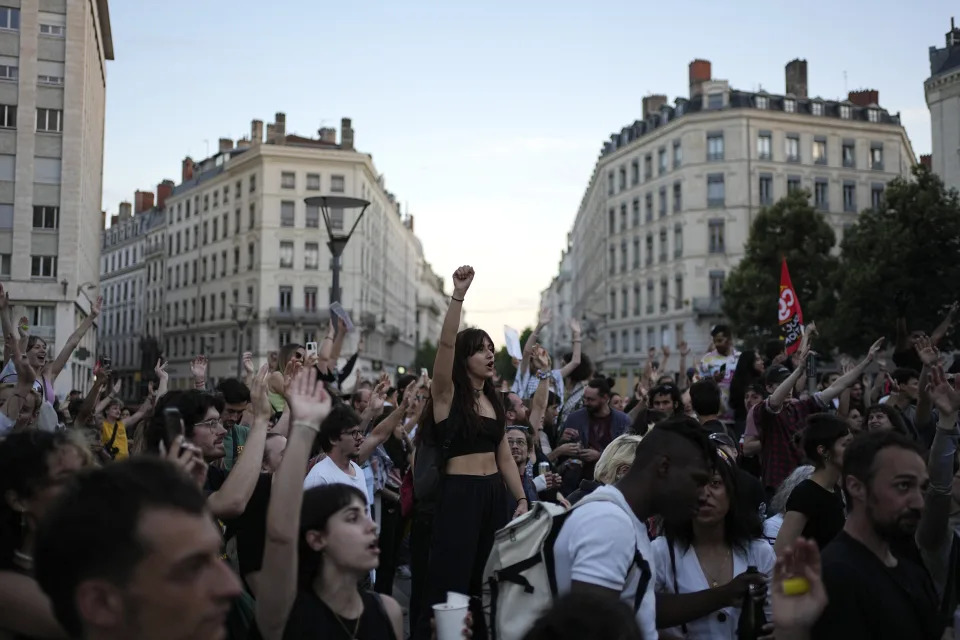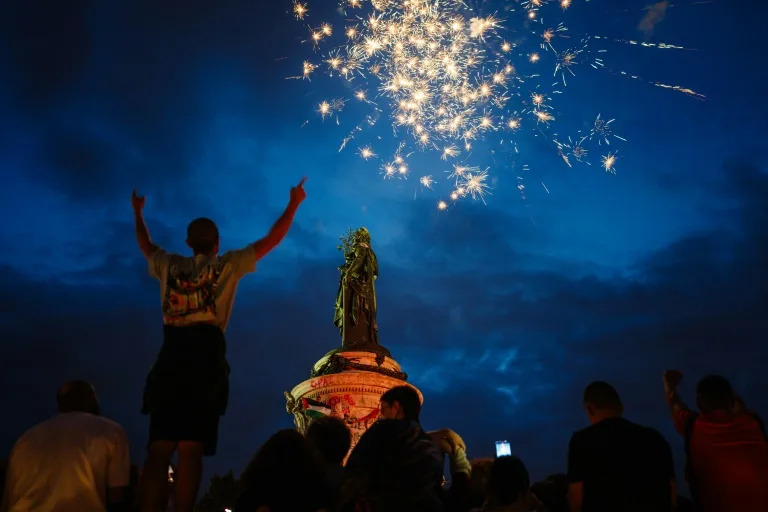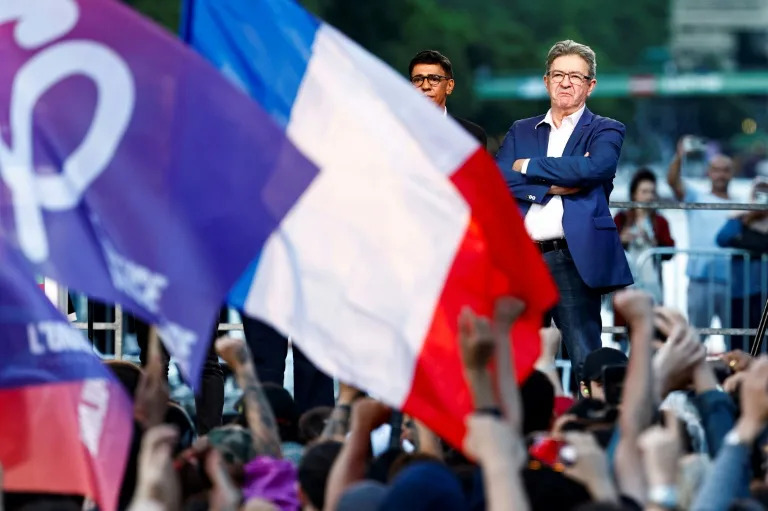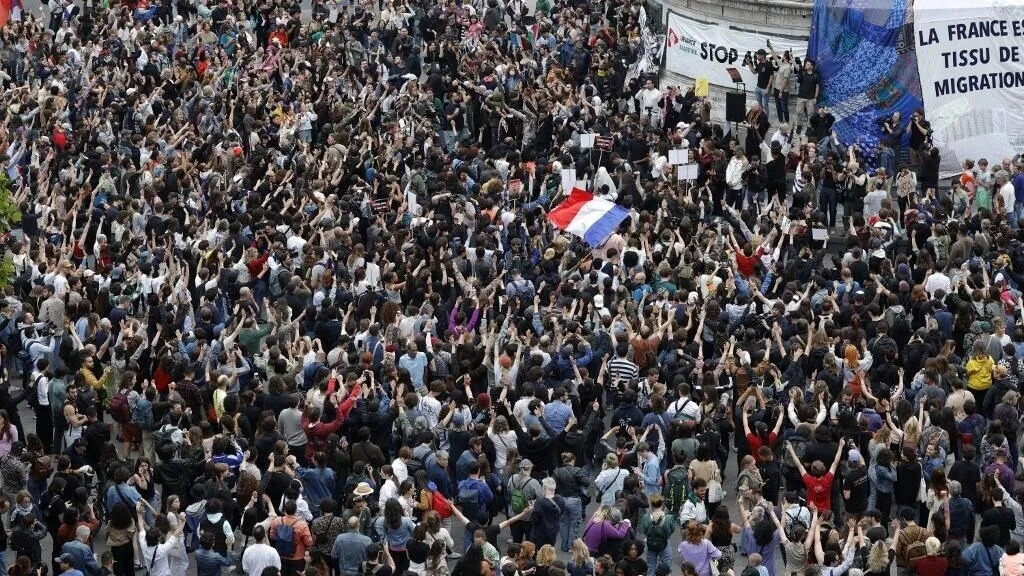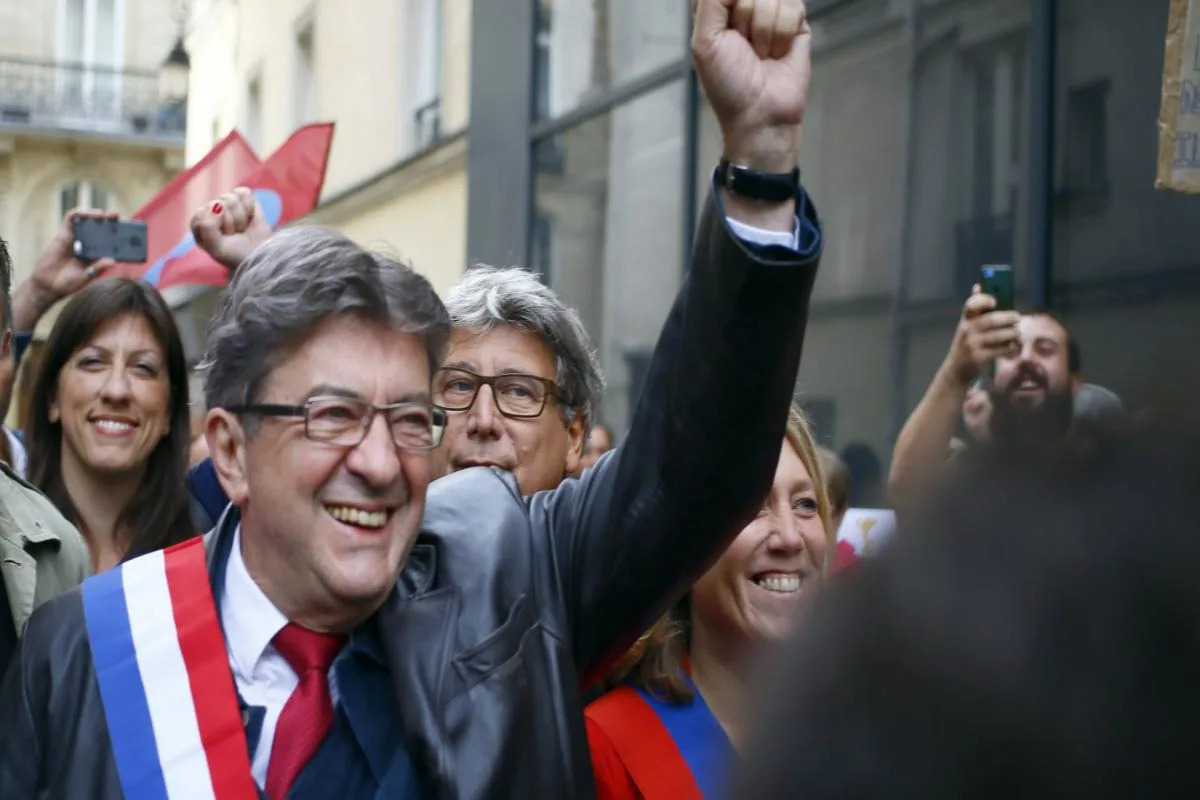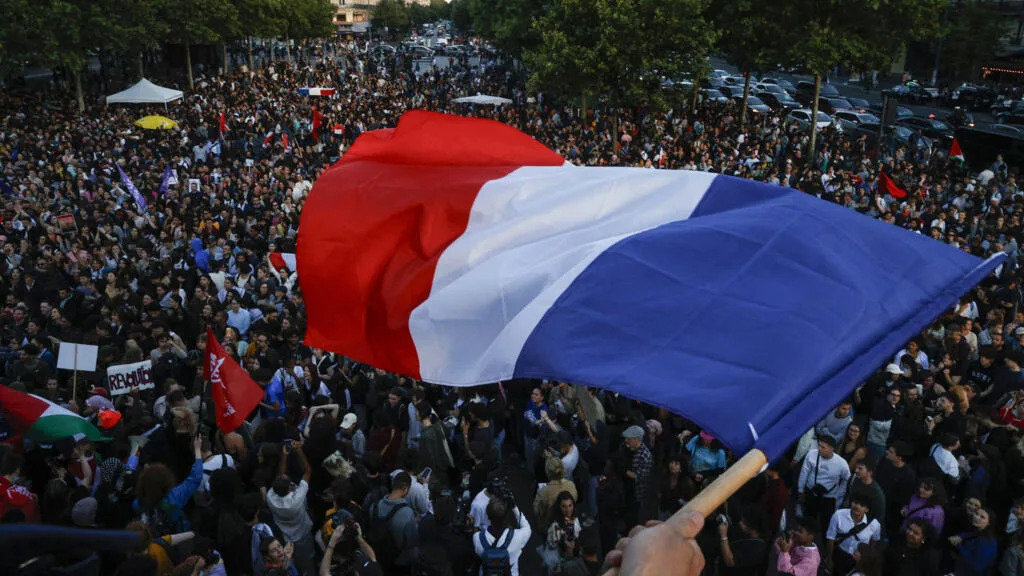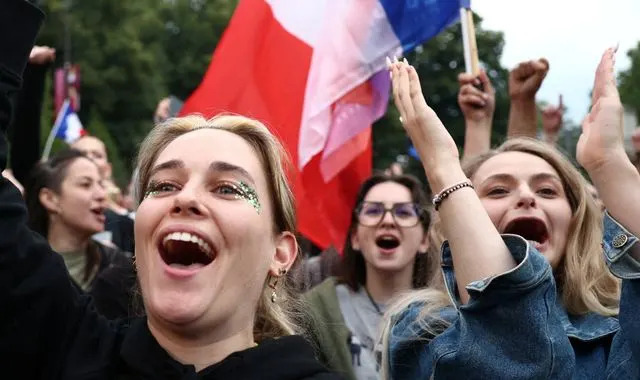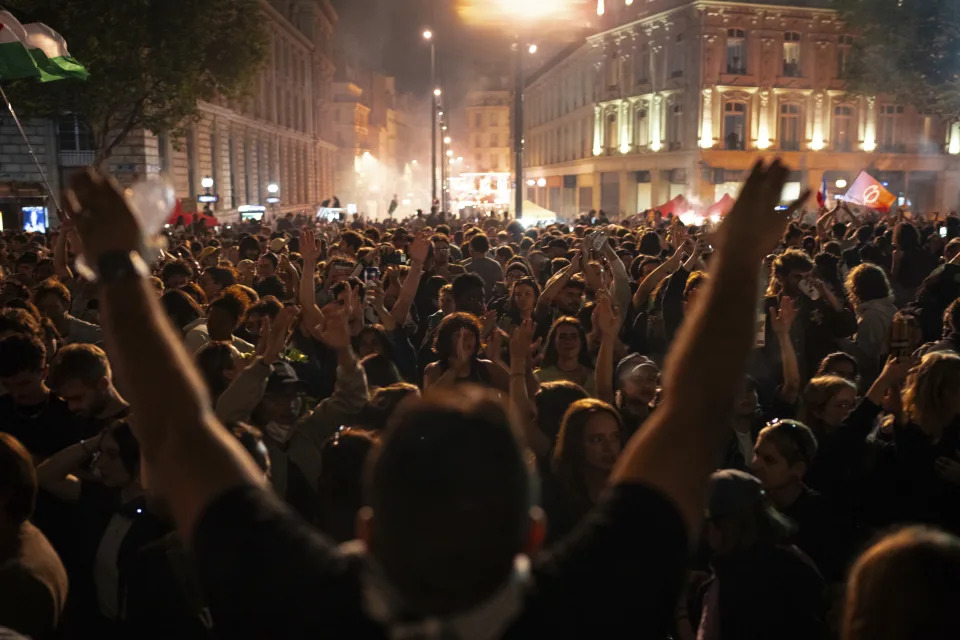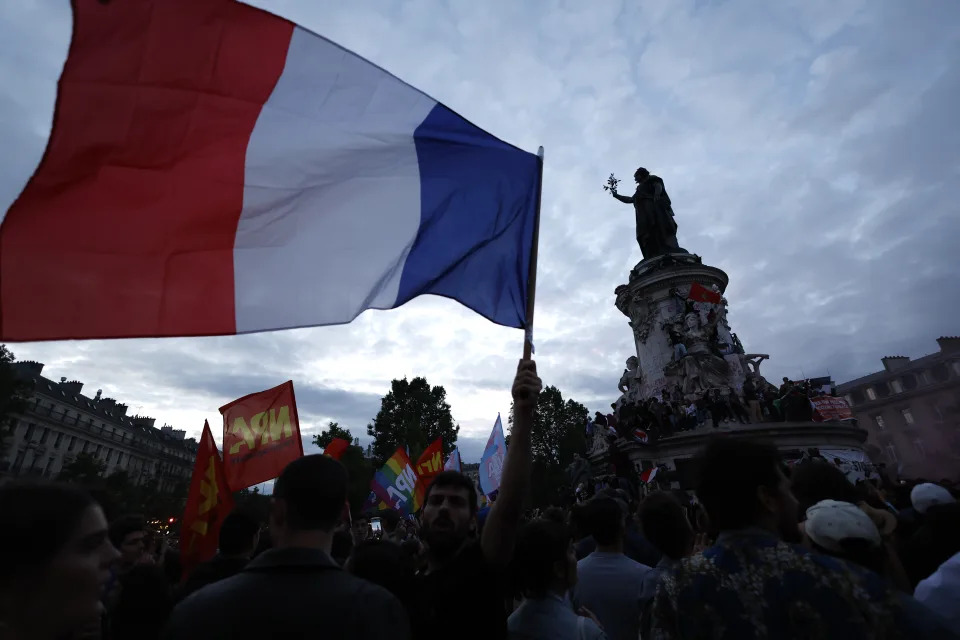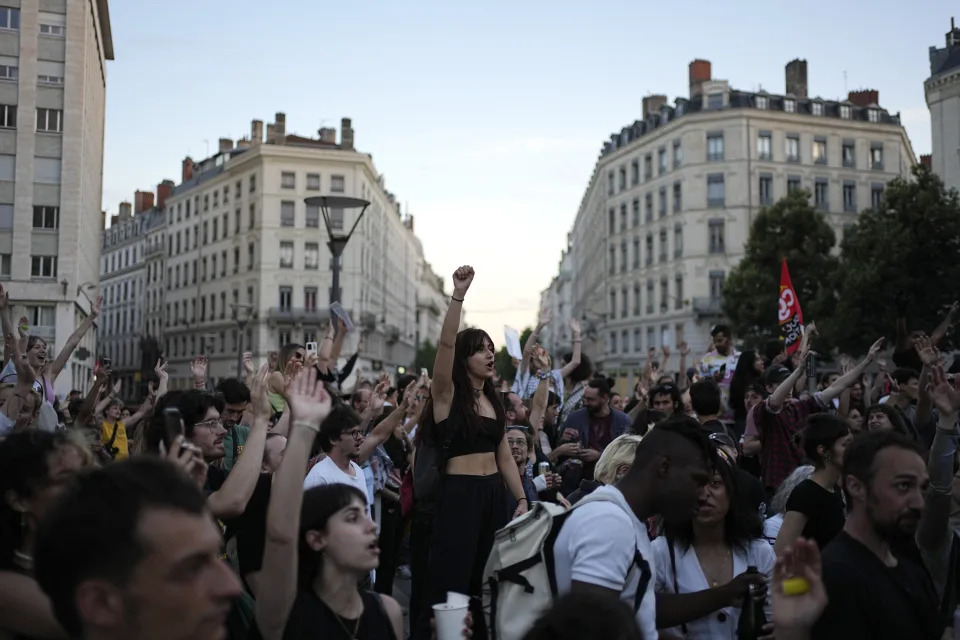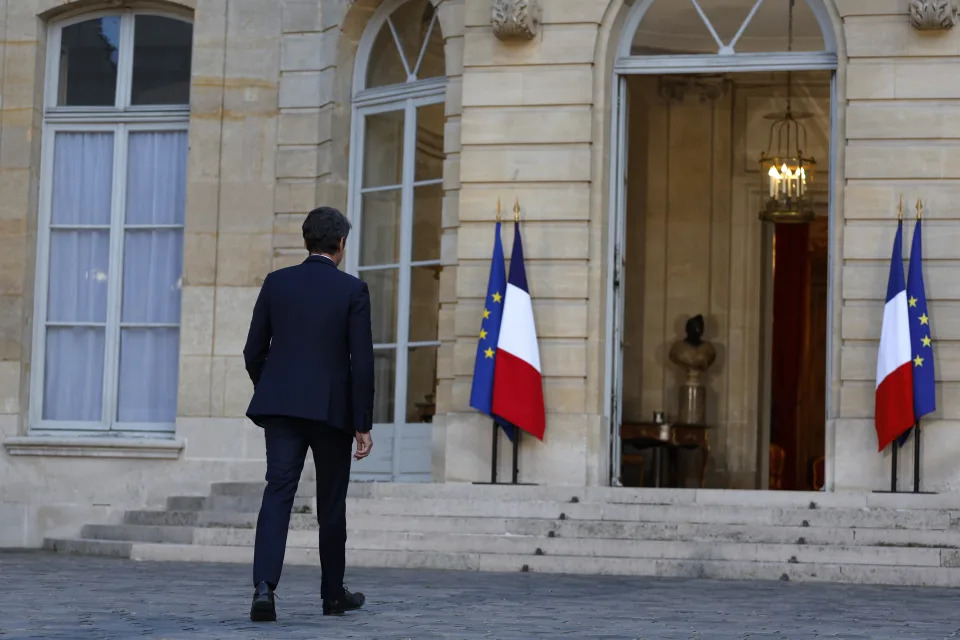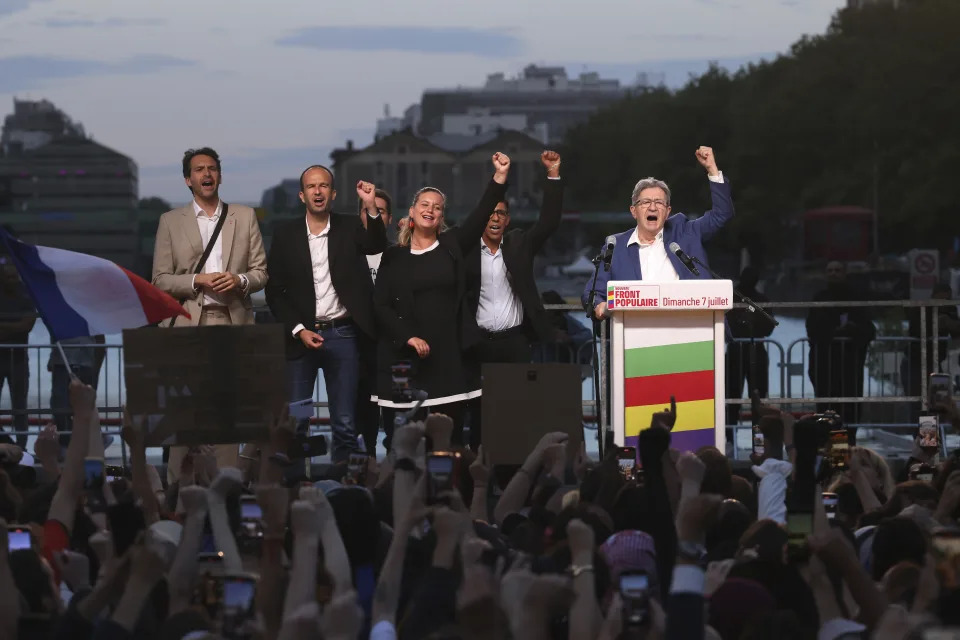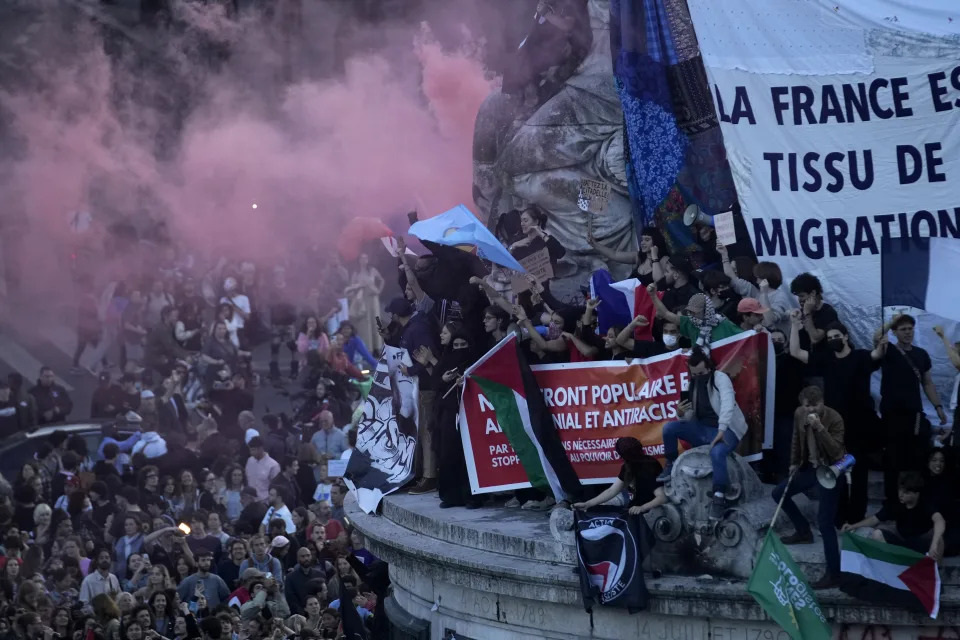Updated Sun, 7 July 2024
By Juliette Jabkhiro, Layli Foroudi and Zhifan Liu
PARIS (Reuters) -France faced potential political deadlock after elections on Sunday threw up a hung parliament, with a leftist alliance unexpectedly taking the top spot but no group winning a majority.
Voters delivered a major setback for Marine Le Pen's nationalist, eurosceptic National Rally (RN), which opinion polls had predicted would win the second-round ballot but ended up in the third spot, according to pollsters' projections.
The results were also a blow for centrist President Emmanuel Macron, who called the snap election to clarify the political landscape after his ticket took a battering at the hands of the RN in European Parliament elections last month.
He ended up with a hugely fragmented parliament, in what is set to weaken France's role in the European Union and elsewhere abroad and make it hard for anyone to push through a domestic agenda.
The election will leave parliament divided in three big groups - the left, centrists, and the far right - with hugely different platforms and no tradition at all of working together.
What comes next is uncertain.
The leftist New Popular Front (NFP) alliance, which wants to cap prices of essential goods like fuel and food, raise the minimum wage to a net 1,600 euros ($1,732) per month, hike wages for public sector workers and impose a wealth tax, immediately said it wanted to govern.
"The will of the people must be strictly respected ... the president must invite the New Popular Front to govern," said hard-left leader Jean-Luc Melenchon.
The RN has worked under Le Pen to shed a historic reputation for racism and antisemitism but many in French society still view its France-first stance and surging popularity with alarm.
There were hugs, screams of joy and tears of relief at the left's gathering in Paris when the voting projections were announced.
Republique square in central Paris filled with crowds and a party atmosphere, with leftwing supporters playing drums, lighting flares, and chanting "We’ve won! We’ve won!"
"I'm relieved. As a French-Moroccan, a doctor, an ecologist activist, what the far right was proposing to do as a government was craziness," said 34-year-old Hafsah Hachad.
The awkward leftist alliance, which the hard left, Greens and Socialists hastily put together before the vote, was far from having an absolute majority of 289 seats in the 577-seat assembly.
Official results were trickling in, with the results from most, if not all, constituencies likely in the early hours of Monday. Polling agencies - which are generally accurate - forecast the left would get 184-198 seats, Macron's centrist alliance 160-169 and the RN and its allies 135-143.
The euro fell on Sunday after the vote projections were announced.
"We should get a brief respite in the market ... because we're not seeing an extremist RN majority take place, but it's likely to lead to political gridlock at least until the autumn of 2025," said Aneeka Gupta, macroeconomic research director at WisdomTree.
Prime Minister Gabriel Attal said he would hand in his resignation on Monday but would stay on in a care-taking capacity as long as needed.
'DIVIDED'
A key question is whether the leftist alliance will stay united and agree on what course to take.
Melenchon, leader of the hard-left France Unbowed (LFI), ruled out a broad coalition of parties of different stripes.
Raphael Glucksmann, from the Socialist Party, urged his alliance partners to act like "grown-ups."
"We're ahead, but we're in a divided parliament," he said. "We're going to have to talk, to discuss, to engage in dialogue."
The constitution does not oblige Macron to ask the leftist group to form a government, though that would be the usual step as it is the biggest group in parliament.
In Macron's entourage, there was no indication of his next move.
"The question we're going to have to ask ourselves tonight and in the coming days is: which coalition is capable of reaching the 289 seats to govern?", one person close to him told Reuters.
Some in his alliance, including former Prime Minister Edouard Philippe, envisaged a broad cross-party alliance but said it could not include the far-left France Unbowed.
RN DISAPPOINTMENT
For the RN, the result was a far cry from weeks during which opinion polls consistently projected it would win comfortably.
The left and centrist alliances cooperated after the first round of voting last week by pulling scores of candidates from three-way races to build a unified anti-RN vote.
In his first reaction, RN leader Jordan Bardella called the cooperation between anti-RN forces a "disgraceful alliance" that he said would paralyze France.
Le Pen, who will be the party's candidate for the 2027 presidential election, said however that Sunday's ballot, in which the RN made major gains compared with previous elections, had sown the seeds for the future.
"Our victory has been merely delayed," she said.
Voters punished Macron and his ruling alliance for a cost of living crisis and failing public services, as well as over immigration and security.
Le Pen and her party tapped into those grievances, spreading their appeal way beyond their traditional strongholds along the Mediterranean coast and in the country's northern rust belt, but it was not enough to win power.
($1 = 0.9236 euros)
(Reporting by Tassilo Hummel, Gabriel Stargardter, Sudip Kar Gupta, Michel Rose, Elizabeth Pineau, Blandine Henault, Zhifan Liu, Sybille de La Hamaide, Richard Lough, Dominique Vidalon, Benoit Van Overstraeten; Writing by Ingrid MelanderEditing by Gavin Jones and Frances Kerry)

